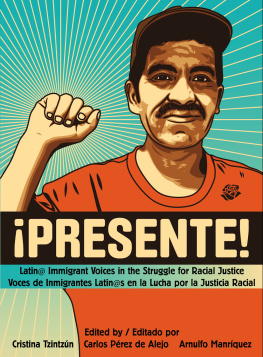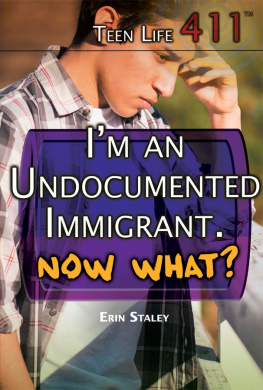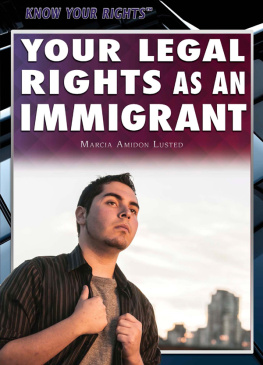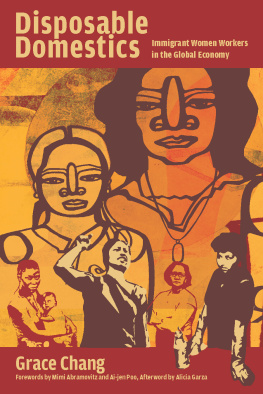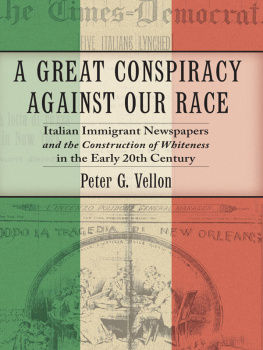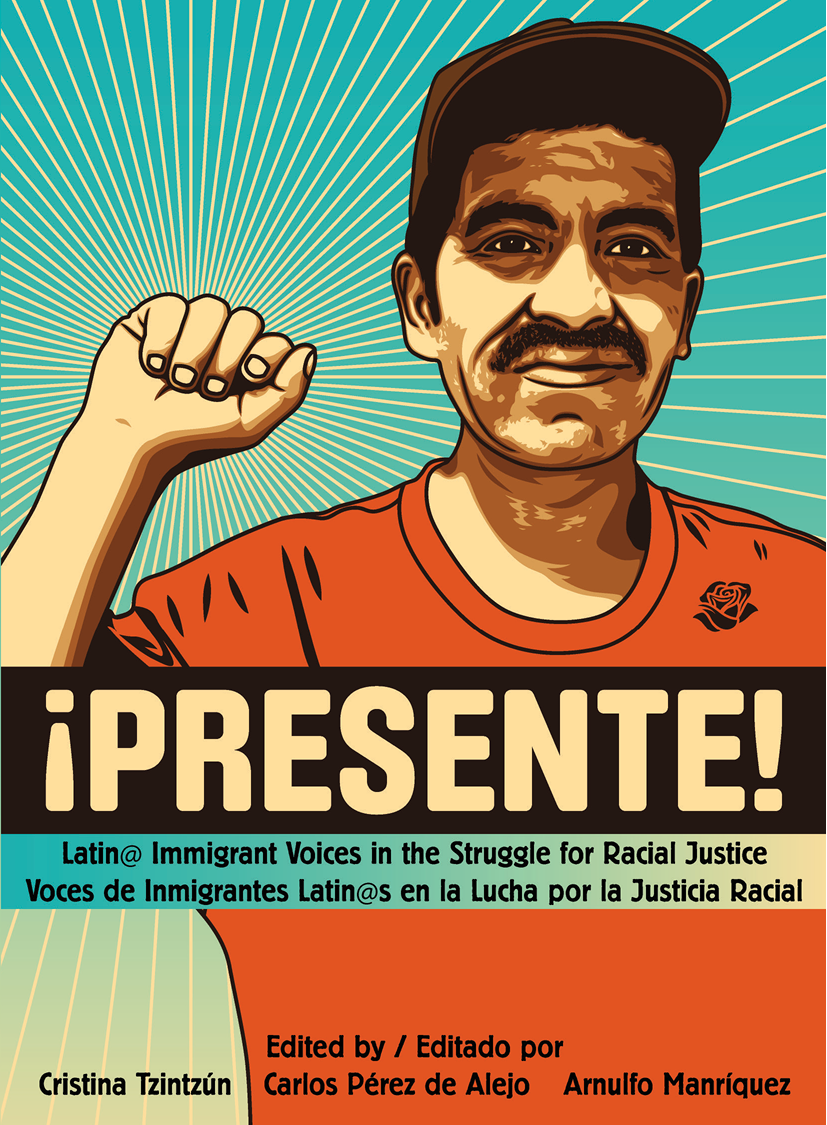Cristina Tzintzún - Presente!: Latin@ Immigrant Voices in the Struggle for Racial Justice / Voces Inmigranted Latin@s en la Lucha por la Justicia Racial
Here you can read online Cristina Tzintzún - Presente!: Latin@ Immigrant Voices in the Struggle for Racial Justice / Voces Inmigranted Latin@s en la Lucha por la Justicia Racial full text of the book (entire story) in english for free. Download pdf and epub, get meaning, cover and reviews about this ebook. year: 2014, publisher: AK Press, genre: Politics. Description of the work, (preface) as well as reviews are available. Best literature library LitArk.com created for fans of good reading and offers a wide selection of genres:
Romance novel
Science fiction
Adventure
Detective
Science
History
Home and family
Prose
Art
Politics
Computer
Non-fiction
Religion
Business
Children
Humor
Choose a favorite category and find really read worthwhile books. Enjoy immersion in the world of imagination, feel the emotions of the characters or learn something new for yourself, make an fascinating discovery.
- Book:Presente!: Latin@ Immigrant Voices in the Struggle for Racial Justice / Voces Inmigranted Latin@s en la Lucha por la Justicia Racial
- Author:
- Publisher:AK Press
- Genre:
- Year:2014
- Rating:5 / 5
- Favourites:Add to favourites
- Your mark:
Presente!: Latin@ Immigrant Voices in the Struggle for Racial Justice / Voces Inmigranted Latin@s en la Lucha por la Justicia Racial: summary, description and annotation
We offer to read an annotation, description, summary or preface (depends on what the author of the book "Presente!: Latin@ Immigrant Voices in the Struggle for Racial Justice / Voces Inmigranted Latin@s en la Lucha por la Justicia Racial" wrote himself). If you haven't found the necessary information about the book — write in the comments, we will try to find it.
Read the media coverage of the increasingly heated debate around immigration reform in the United States: two dominant narratives emerge. From Lou Dobbs to Sean Hannity, commentators on the right have crafted an image rooted in fear, demonizing undocumented immigrants as a threat to national security and raising the specter of a deliberate browning of America. Left-leaning journalists, on the other hand, foreground victimization, emphasizing the plight of immigrants, stripping them of their agency. Neither captures the range of experiences within undocumented immigrant communities, and both fail to see immigrants as active participants in their own struggle for racial and economic justice.
Presente! offers a rare perspective on the immigrant-rights movement, written by immigrant workers themselves. Including a range of essays exploring the intersection of race, class, and immigration in the United States, this anthology challenges its readers to move beyond a legalization-only framework and embrace a broader vision for social justice organizing embodied in the work of grassroots organizations across the country resisting state repression, cultivating solidarity, and building alternative models for progressive social change. Offered in a dual-language edition, with a foreword by Democracy Now! co-host Juan Gonzles.
Cristina Tzintzn is the executive director of Workers Defense Project, a Texas based workers rights organization.
Carlos Prez de Alejo is the executive director of Cooperation Texas, an organization dedicated to the creation of sustainable jobs through the development, support, and promotion of worker-owned cooperatives.
Arnulfo Manrquez is an organizer at Workers Defense Project, where he organizes immigrant construction workers to defend their labor and human rights.
Cristina Tzintzún: author's other books
Who wrote Presente!: Latin@ Immigrant Voices in the Struggle for Racial Justice / Voces Inmigranted Latin@s en la Lucha por la Justicia Racial? Find out the surname, the name of the author of the book and a list of all author's works by series.

